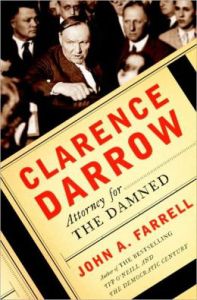
He was a radical in the age of laissez faire. “With the land and possessions of America rapidly passing into the hands of a favored few; with thousands of men and women in idleness and want; with wages constantly tending to a lower level . . . with the knowledge that the servants of the people elected to correct abuses are bought and sold in legislative halls at the bidding of corporations and individuals; with all these notorious evils sapping the foundations of popular government and destroying personal liberty, some rude awakening must come.” And he stars in this superb book about the Gilded Age.
Estimated reading time: 4 minutes
That was the legendary attorney Clarence Darrow (1857-1938): champion of labor, a founding director of the NAACP and co-founder of the ACLU, “the country’s most prominent and outspoken atheist,” advocate of free love, “Jefferson’s heir—his time’s foremost champion of personal liberty,” a superstar of the Gilded Age. As John A. Farrell describes him, Darrow was “a Byronic hero—intelligent, captivating, jaded, moody; a renegade, with small regard for rank or privilege. He scorned society and its norms, and this seeped into his practice of the law. He would employ any trick to save a client.”
Clarence Darrow: Attorney for the Damned by John A. Farrell (2011) 594 pages ★★★★★
It was called the Gilded Age. That phrase, the title of two novels by chroniclers of the time, Mark Twain and Henry James, is now frequently found describing our own era. Then, as now, the fruits of innovation and increased productivity gravitated upwards into the hands of a few, with millions consigned to needless misery in a relentless war of labor versus capital. In the closing years of the nineteenth century and the opening decade of the twentieth, when John D. Rockefeller became the country’s first billionaire, the sources of new wealth were the economies of scale, speed, and coordination afforded by the Industrial Revolution. Today the principal engine that generates new billionaires by the score is the software that characterizes the Information Age.
At the remove of more than a century, Rockefeller, Andrew Carnegie, J. P. Morgan, and Theodore Roosevelt come to mind as the avatars of the Gilded Age. Then, other names just as commonly featured in the news: Eugene V. Debs, Big Bill Haywood, and Samuel Gompers, the leaders of the labor movement who figured most prominently in the economic wars during the movement’s bloodiest days. But no one was more widely revered, or more deeply reviled, than the attorney Clarence Darrow.
In his time, Clarence Darrow was known as a champion of labor and the poor
Today, his name is most likely to conjure up images of the Scopes “Monkey” Trial, when he squashed the hapless William Jennings Bryan in the courtroom and turned the tide in the debate in which the theory of evolution faced off against the shaky certainties of Right-Wing Christianity. However, in his time, Darrow was better known as a champion of labor, the poor, and women. He was the man who achieved an acquittal in Big Bill Haywood’s trial on trumped-up murder charges in what for many years was considered the Trial of the Century.
As his friend and frequent collaborator Lincoln Steffens described him, Darrow was “the attorney for the damned.” As Farrell notes, “a third or more of Darrow’s cases earned him nothing.” Darrow himself explained: “Well what can a fellow do, when some poor devil comes to him, with a cent or a friend in the world, trembling in his shoes and begging for a chance before the law?” Yet at times Darrow showed himself prone to cynicism. “If the underdog got on top he would probably be just as rotten as the upper dog, but in the meantime I am for him. He needs friends a damn sight more than the other fellow.”
Clarence Darrow: Attorney for the Damned is a masterful biography. I can think of few other books that can serve as insightfully as an introduction to the history of the Gilded Age — or as a cautionary tale about the political challenges of our own time.
For related reading
Like to read good biography? Check out 10 great biographies.
You may enjoy browsing through 20 top nonfiction books about history.
If you enjoy reading history in fictional form, check out 20 most enlightening historical novels.
For more good books on the history of the US, see Top 20 popular books for understanding American history.
And you can always find my most popular reviews, and the most recent ones, on the Home Page.

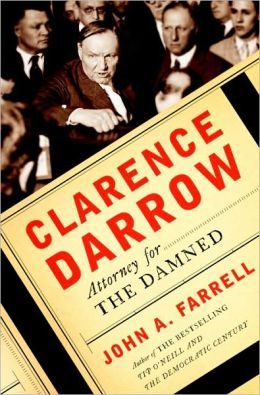
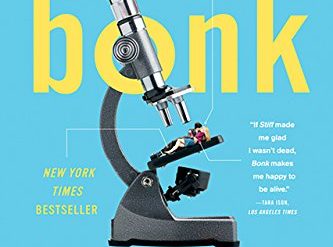
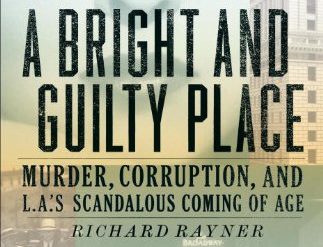
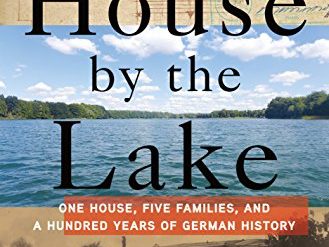
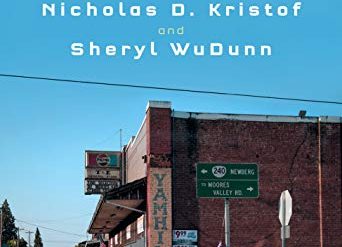






















my understanding is the name Gilded Age comes from a novel of the same name cowrittten by Mark Twain which precedes Henry James. I suspect Mark Twain is a better fit for the most important anti Gilded Age personality
You’re right, of course. My bad. Thanks for the correction.